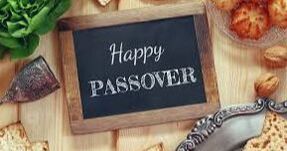But what is Lag B’Omer. The period called "the omer" begins the second night of Passover and continues until Shavuot. The omer (literally "a measure") was an offering of the first of the new grain harvest. The Torah commanded that seven weeks be counted from the time of the offering of the omer. The period also became known as sefirah—literally, "the counting.” The omer period was harvest time contemplation with the concern for a successful crop. This year that counting and serious reflection has never been more powerful. Lag B'Omer occurs on the thirty-third day of the omer count (Iyyar 18). The name comes from the numerical values assigned to the Hebrew letters lamed (30) and gimel (3), hence "LaG."
Lag B'Omer today is a festival usually celebrated by picnics and other outings during where mourning practices of the omer are lifted. There is also an old custom whereby children play with bows and arrows on this day. The most frequent explanation for the importance of Lag B'Omer is that a plague that killed Rabbi Akiva's students either ended on this day or was suspended during it. Some believe that the story about the plague is actually a cryptic reference to the unsuccessful revolt of Bar Kokhba against the Romans. This revolt, (132-35 C.E.) was supported by Akiva and perhaps these mourning practices were for those killed during the revolt. The archery custom fits with this theory. Some feel the origin of the holiday truly lies in folk customs that have parallels in other cultures, like May Day.
For many years we celebrated Lag B’Omer with a campout at Mike Schwartz’s Mishkan Ranch in Acton. We went Israeli style, with a big bonfire BBQ and in the morning we played paintball. We also held a campout for a few years up at Valley Trails Camp in Castaic with archery, zip lines and a pretty big campfire. We also have had several park days around Valencia, bringing together people of all ages for fun and games.
But what do we do this year? Lag B’Omer begins Monday night May 11th and we didn’t want to let the holiday go by without celebration, so we turned to our congregants, the Scotts and their great restaurant Nealie’s Skillet, for help. They whipped up a delicious and very affordable Lag B’Omer BBQ menu. With a wonderful meal, beautiful So. Cal. weather and maybe a backyard fire pit, it will hopefully be a great night.




 RSS Feed
RSS Feed
